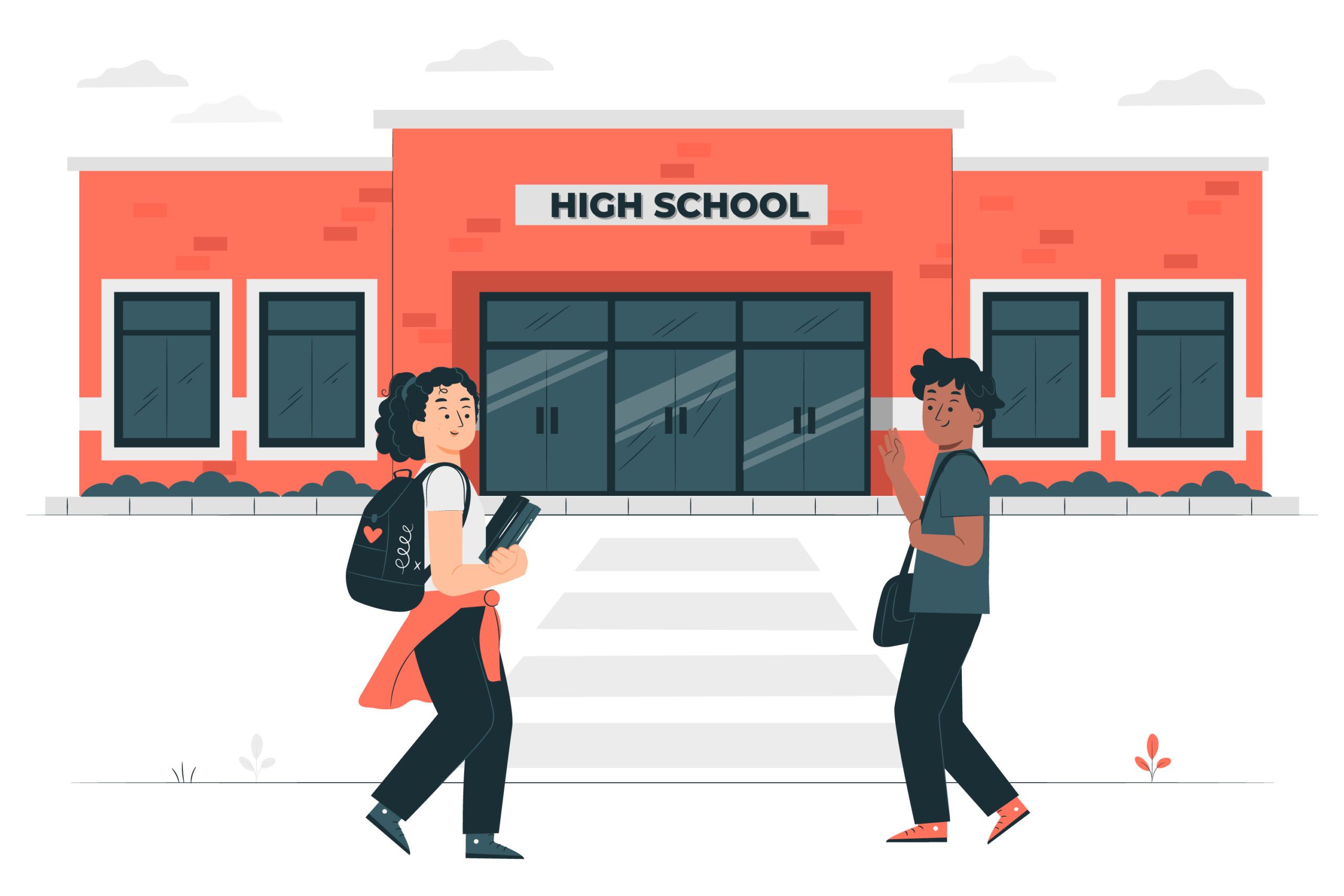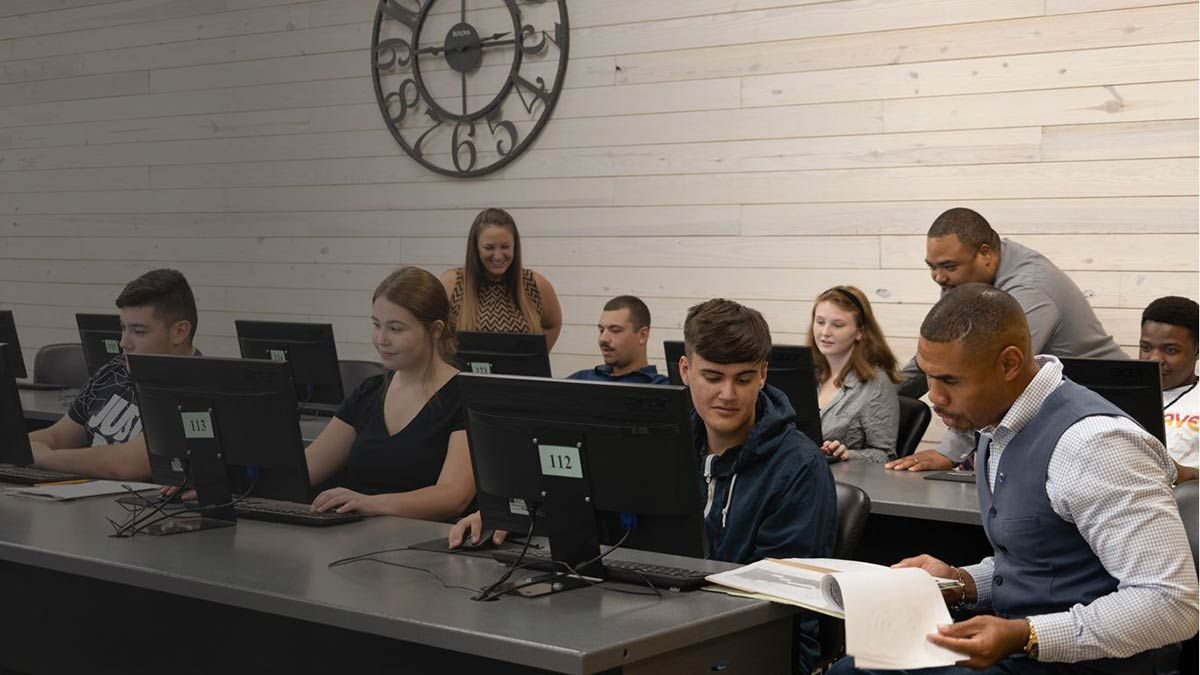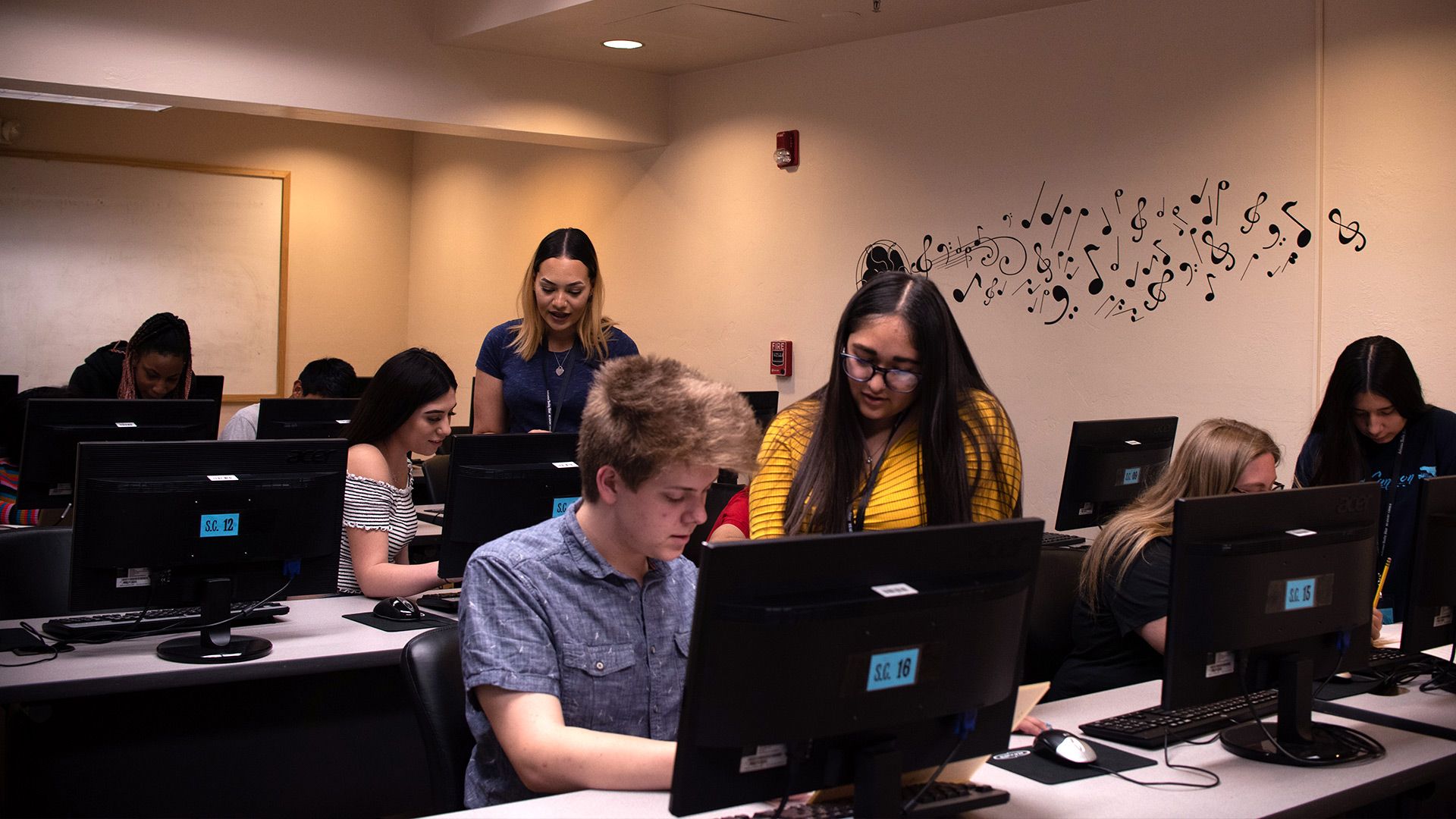Some parents wonder; “does school prepare you for the real world?” The concern being that high schools aren’t actually equipping students for life after graduation. As young adults step out into a world that demands versatility and adaptability, many find that their high school experience has left them underprepared for the challenges ahead.
This blog will discuss the core of traditional high school education and explore its potential gaps in preparing students for the realities of adult life. We’ll also examine how schools are meeting, or failing to meet, the needs of students as they transition to higher education or step into their first jobs. The focus will be on the important skills that are often overlooked but are crucial for success outside the classroom.
Amidst these discussions, it’s important to highlight an innovative educational approach that promises a more well-rounded and effective preparation for the real world. At The Rose Academies, our curriculum fosters academic success and essential real-life skills, bridging the gap between school achievements and real-world challenges.
Contact us at The Rose Academies today to learn more about how our high school prepares students for the real world.
The Gap in High School & “Real World” Preparation
Traditional high schools often prioritize academic achievements and standardized testing, which does not build the practical skills needed in everyday life and the workforce. This creates a significant gap as students leave high school without mastering essential life skills such as financial literacy, effective communication, critical thinking, and emotional intelligence.
These competencies are needed to help navigate the challenges of adulthood, yet they are frequently overlooked in a traditional high school curriculum.
Traditional High Schools & “Real World” Education
Traditional high schools typically focus on a curriculum around standardized tests and college admissions. This approach often neglects the broader skills needed in the real world, potentially leaving students unprepared for both higher education and career success.
Schools Aren’t Helping Students Prepare for College
Many high schools focus on memorization and test-taking strategies, which do not necessarily translate into the skills needed for college success, such as research, analytical thinking, and self-directed learning. This disconnect can leave students struggling academically and emotionally when they encounter the more independent and challenging environment of college.
Schools Aren’t Preparing Students Reach Their Careers
Similarly, the traditional high school curriculum often fails to equip students with the practical skills required in the modern workplace, such as teamwork, digital literacy, and creative problem-solving skills. As the labor market continues to evolve rapidly, students need more exposure to real-world applications of their studies and opportunities to explore diverse career paths.
Why High Schools Need to Better Prepare Students for After Graduation
Given the evolving demands of the workforce and higher education, it’s critical that high schools adapt to better prepare students for life after graduation. Integrating real-life skills into the high school curriculum is essential to ensure students are truly ready to face the challenges of the real world, especially those who are not attending college.
How High School Should Be Helping Students
High schools should extend their focus beyond traditional academic subjects to encompass a broader spectrum of education, including critical life skills and real-world applications. This involves embedding the learning process with opportunities that promote soft skills such as leadership, communication, and emotional intelligence.
Schools need to foster environments where students can engage in collaborative projects, community service, and internships that provide a taste of the workforce and civic engagement.
Real Life Skill Preparation
High schools should provide more opportunities for students to acquire real-life skills that are essential for personal and professional success. These include financial management, health and wellness, interpersonal skills, and adaptability to different situations and job types.
Integrating these skills into the curriculum can help students become more well-rounded and prepared for the unpredictability of life post-graduation.
How Rose Prepares Students for After High School
Ideally, students should leave high school feeling confident to move on to the next step of their lives, college or the workforce. However, upon graduation, many students that have attended traditional high schools may lament that they don’t feel prepared at all. Even those students with respectable GPAs and solid test scores sometimes struggle to apply what they have learned to live after high school. We are set on changing that at the Rose Academies charter schools by offering an alternative.
We accomplish this in a variety of ways, including:
- Learning how to learn, provoking thought
- Instilling self-motivation
- Opportunity to practice work/life balance
Learning How to Learn
The Rose Academies stand out in their approach to preparing students for life after high school. We focus on critical learning methodologies and real-world skills rather than traditional academic rote learning. Our educational philosophy is centered around “learning how to learn,” which encourages students to think critically and adaptively.
With learning how to learn, the Rose Academies are dedicated to expanding students’ minds, not fitting them neatly into a box. Memorizing and regurgitating information may produce a nice standardized test score, but it rarely translates to real-world understanding or success. Many students come to Rose because they are looking for an alternative to the monotonous structure of traditional schools. By teaching students how to think critically and learn endlessly, they can face any challenge with a level of confidence in their abilities.
This approach goes beyond just absorbing information to developing a mindset that values continuous learning and problem-solving, both of which are crucial critical thinking skills in higher education and the workplace.
Instilling Self-Motivation
Furthermore, The Rose Academies instills self-motivation and offers students practical opportunities to manage work/life balance – skills that are often underemphasized in traditional settings. By allowing students to design their own learning paths and schedules, The Rose Academies promote self-directed learning and personal responsibility. This flexibility helps students learn to balance their academic responsibilities with personal interests and obligations, mirroring the kind of scheduling autonomy they might experience in college or their future careers.
Self-motivation is a natural byproduct of being a student at the Rose Academies. With a highly individualized curriculum, students can work at their own pace and often independently, though teachers are always present to answer questions or provide guidance. Each new student to the Rose Academies sits down with an academic coach to map out their goals for the year, helping to ensure students know what is expected and make their plan for success.
Practicing Work/Life Balance
Practicing work/life balance is a skill many adults struggle to cultivate, perhaps because they’ve never been allowed to practice. One of the most obvious differences between the Rose Academies and traditional high schools is the option for students to design their schedules. Sessions are offered in five-hour blocks, three times a day, allowing students to hold a job, tend to other responsibilities, or more deeply explore outside interests while pursuing their diploma. Many students go onto college or a career having never before practiced prioritizing or time management. At the Rose Academies, the educational experience is designed around training students in the fundamental skills needed to graduate high school and transition into the world beyond.Through these innovative educational practices, Rose Academies prepares students academically and equips them with the essential life skills needed to handle the complexities of the real world. Contact us at The Rose Academies today to see how our high school can help prepare your child for adulthood.







